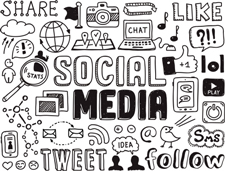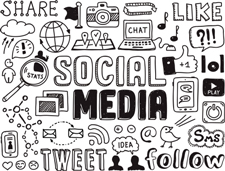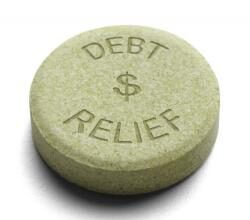It’s no secret that social media has transformed the way American businesses market their products and services. The fact that Facebook has more than one billion registered users is difficult to ignore.
It’s no secret that social media has transformed the way American businesses market their products and services. The fact that Facebook has more than one billion registered users is difficult to ignore. Such sites can be an ideal place for clinics, hospitals and private practices to connect with their existing and potential patients.
However, the social media strategies that work for an auto dealer or a restaurant aren’t necessarily well-suited for the medical sector. In fact, the American College of Physicians recently advised those in the medical community to “proceed with caution on social media” Does that mean your practice or clinic should ignore social media? We don’t think so. However, it does pay to take a good look at what works for medical practices and what doesn’t.
Social media and medical practices: what works
1. Using social media to establish trust. If potential patients see your Facebook posts on their daily feed, they will start to look to you as an authority in your particular medical field. Although they may not need a doctor right now, they will likely look to the person they’ve grown to trust when they do.
2. Using social media to teach. Social media can also be used to help raise awareness of common public health issues, like the need for exercise or ways to stop smoking. The Cleveland Clinic is particularly effective at using such posts on their Facebook page. This type of post also helps to establish your practice or clinic as a health authority.
3. Using social media to announce events. If your clinic or practice offers periodic free tests or wellness events, social media sites like Facebook and Twitter are great places to spread the word. If you can get your “friends” to share your post with their friends, etc., you can reach many more people than a traditional print ad. Plus, social media posts are free.
Social media and medical practices: what to avoid
1. Sharing too much. Sharing examples make your posts more relevant to your readers. However, if you share anything that could cause the patient to be identified, you are violating U.S. federal HIPAA regulations. For example, if you share a story of an accident victim, the unusual nature of the accident could cause the person to be identified even if you leave out his name. Best to err on the side of caution.
2. Dispensing medical advice. Online “friends” may ask direct medical questions on your site. However, suggesting anything except that they should discuss the issue with their physician opens you and your staff up to possible malpractice charges. Best to avoid all such discussions.
Used properly, social media is a great tool for private practices, clinics and even hospitals to spread the work about what they do. However, like all marketing tools, it is most effective when you take the time to learn what works and what doesn’t.







